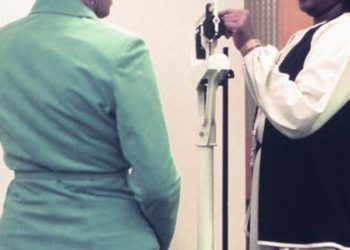Estradiol may be anti-atherosclerotic in early postmenopausal women: the ELITE study
1. Oral estradiol therapy slowed the progression of subclinical atherosclerosis when initiated in early menopause, but not when initiated in late menopause.
2. Clinical metrics such as coronary-artery calcium, total stenosis, and plaque development did not differ significantly between estradiol and placebo.
Evidence Rating Level: 1 (Excellent)
Study Rundown: This study, named the Early versus Late Intervention Trial with Estradiol (ELITE) study investigated the anti-atherosclerotic effects of hormone replacement therapy (HRT) in relation to time since the onset of menopause. The participants were stratified into early and late post-menopausal and received either HRT with estradiol and vaginal progesterone gel or placebo. After a median of 5 years, the effect of estradiol, with or without progesterone, led to a significant difference in carotid artery intima-media thickness (CIMT) between the HRT and placebo groups in the early post-menopausal stratum. Cardiac CT was also undertaken to assess coronary atherosclerosis, but no significant between group difference was found in either post-menopausal stratum.
This study draws strength from being sufficiently powered to detect a predetermined expected change in CIMT and to detect interactions between the study group and post-menopausal stratum. It directly addresses ambiguities related to initiation of therapy that confounded previous trials that surveyed the association between postmenopausal HRT and the risk of coronary heart disease. One notable limitation is its lack of direct comparison between women who did not have a uterus and therefore did not receive vaginal progesterone or placebo gel.
Click to read the study in NEJM
Relevant Reading: Estrogen effects on arteries vary with stage of reproductive life and extent of subclinical atherosclerosis progression
In-Depth [randomized controlled trial]: In this single-center, randomized, double-blind, placebo-controlled trial, postmenopausal women without evidence of cardiovascular disease were stratified into early post-menopause (<6 years) or late post-menopause (≥ 10 years). Participants were randomly assigned to receive oral 17β-estradiol (1 mg daily) and 4% progesterone vaginal gel or placebo pill and placebo gel. The primary outcome was the rate of change in the far wall of the right distal CIMT, measured via high-resolution ultrasonography. The secondary endpoints were measurement of cognition and measurement of the degree of coronary atherosclerosis via cardiac CT.
Mean rate of change in CIMT for the early post-menopause stratum: placebo was 0.0078 mm (95% [CI], 0.0060 to 0.0096 mm) vs. estradiol, which was 0.0044 mm (95% [CI], 0.0026 to 0.0061 mm), p=0.008. Mean rate of change in CIMT for the late post-menopause stratum: placebo was 0.0078 mm (95% [CI], 0.0060 to 0.0096 mm) vs. estradiol, which was 0.0044 mm (95% [CI], 0.0026 to 0.0061 mm), p=0.008.
No significant between-group difference was found between women in the early and late post-menopause strata in cardiac CT measures of coronary atherosclerosis between the placebo and estradiol groups.
Image: PD
©2016 2 Minute Medicine, Inc. All rights reserved. No works may be reproduced without expressed written consent from 2 Minute Medicine, Inc. Inquire about licensing here. No article should be construed as medical advice and is not intended as such by the authors or by 2 Minute Medicine, Inc.









